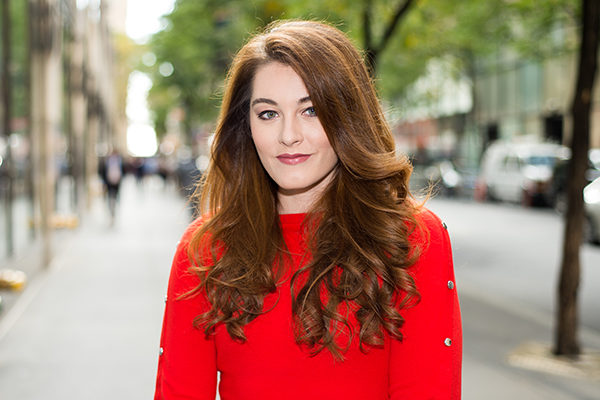
People
Scenes from an Interview
HEAR & NOW
By Gus Mollasis
Dr. Herb Silverstein
He loves what he does each and every day – helping folks hear their world. Consistently named as one of the best physicians in America, Dr. Herb Silverstein has been a leader in making strides and innovations in otology — the science of the ear — for more than 30 years.
He is regarded internationally as a leading authority on Meniere’s disease, having received the prestigious Gold Medal Award from the Prosper Meniere Society for his work and contributions to treat the disease. Not bad for a kid from Philly who went to med school at Temple University and served on the teaching staff at Harvard.
In 1979, Dr. Silverstein founded Silverstein Institute and the Ear Research Foundation, where today he serves as its President, Medical Director and Director of Research. The Foundation is close to the doctor’s heart and is built on a three-dimensional focus — research, education and treatment. What he has learned he has shared, teaching medical students, residents and fellows, while helping people from all walks of life.
You’d think that with all that on his plate he wouldn’t have to time to stop and smell the flowers of life a bit. But in his case, his flowers are the second passion of his life — jazz. Introduced to him in the clubs of Philly in his youth by his father, Dr. Silverstein, or just Herb as he is known when he’s tapping the ivories, fell in love with this great American musical art form. So much so that up to now he’s produced some 13 jazz albums largely comprised and composed of his original works.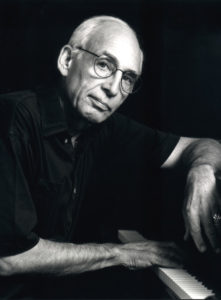
It should also come as no surprise that the good doctor was more than a little excited that Mandy Harvey, the deaf singer who rose to fame on this year’s America’s Got Talent, is coming to Sarasota to share her talents and focus the spotlight on the good work of the Ear Research Foundation. It is music to his ears. He couldn’t help but crack a smile at the thought of sharing perhaps a riff or two with the young singer. When I sat down with him after he saw his last patient of the day, I couldn’t wait to kick back and listen to some jazzy scenes from an interview of his life.
What did your childhood neighborhood sound like?
I lived in center city Philly on Pine Street and had a trolley running across the house, so we would always hear the trolley car. It was a brownstone. My father was a neuropsychologist and we lived above his office. It was always interesting and we could hear the sounds of the city.
What were the greatest lessons learned from your parents?
Dad told me to do the best that I can and always strive for the best, especially being Jewish. You got to be the best that you can ever be because you’re going to be discriminated upon. In those days, we had 10 percent of Jews who got into medical school, so it was hard to get in and you had to excel to get ahead. Mom stressed the same things and was a homemaker and actually worked as a secretary for my father.
When did you first realize that you were cut out to be a doctor? Was it a calling?
My father was neuropsychologist and so he had patients at the city hospital. When I was 10 years, he would take me on rounds with him. I would see him seeing all his patients, all these varied cases. I didn’t know that I wasn’t supposed to be anything but a doctor. I thought this is what you do. Follow your father around. Everybody seemed to love him. It was interesting because he arranged for me to have a residency in neurosurgery. And he had this all arranged when I was 10 years old. He was a professor at Temple University. As I grew up he told me that I was going to be neurosurgeon because he was a neurologist. He said neurosurgery is great. You go into the brain and you can help people. So that’s how I was set up to being a neurosurgeon from the time I was kid. My father was the biggest influence on me becoming a doctor and he was proud of me.
Tell me about those early days as a doctor.
I went to Philadelphia General and was given the neurosurgeon rotation the first month as an intern. I was up all night and the patients were dying so I got very depressed with neurosurgery. I didn’t think that it was a very good thing to do. There wasn’t a lot of happiness in that field so I decided not to go into it. I was set up with residency and everything, but I canceled, and I had to figure out what I was going to do. I knew I was going to be surgeon because I was good with my hands and I built trains. I was looking for something and it just so happened that ear surgery was just in its infancy in the late 1950s. The microscope that allowed us to operate on the ear was just invented and you could look in and see the structures of the ear. It made the ear look very large so you could operate with your hands. This was a brand-new field just starting at Temple, so I got very excited. There was very little research being done and the field was just coming of age. I’ve always been in research and development from the time I was a little kid. So, I was bumping into guys who were otolaryngologists (ear, nose and throat) and they told me what a great field it was and that I should go into this field because it was new and needed a lot of research. I was into that. It all fit together and I was very excited about getting into it. Then a mentor of mine, Dr. Gene Meyers, persuaded me to go to Harvard with him and I became a part of that program for eight years. I was on the staff and did a lot of teaching, and that’s how I got started. These were the pioneer days in the field.
How much has recent technology helped move your field light years ahead in helping patients?
Technology with computers and such did amazing things for all specialties, especially cochlear implant. It was allowed to expand because the computer was able to code speech so the person could actually understand language.
When people ask you what you do, what do you tell them?
I’ve been in research and development and teaching and that’s why I started the Ear Research Foundation in 1979, to continue doing research, teaching and education. I’ve been involved in training young doctors for years. We’ve trained 44 physicians in ear surgery, and I’ve developed a lot of techniques that are used now. I taught young doctors how to do it and they go around the country and spread the word and keep expanding the knowledge.
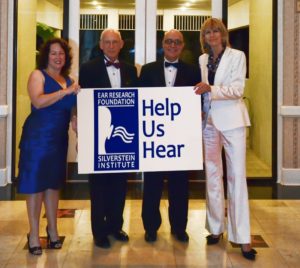
What are you most proud of out all your accomplishments?
Vestibular Neurectomy was my biggest development. Being able to cut the balance nerve in Meneire’s disease and save the hearing and doing it through the ear. Neurosurgeons had done it through the skull, which was a big operation. I developed an operation that goes through the ear.
Does your love of music as a jazz pianist help bridge the gap in terms of empathy with your patients?
It’s an amazing thing to be able to hear and create. I empathize with people who can’t hear. But today nobody has to be deaf. Compared to ophthalmology—you can’t make a blind person see—but you can make a deaf person hear with cochlear implants. So, we are now ahead of them in the research. It’s a wonderful thing to be able help people with their hearing so they can hear the music. I give them my music when I’m going to operate on them. It’s a kick. It’s a thrill.
How much do you love music?
The passion starts when you’re a kid. My parents always played classical music— Bach, Beethoven and all that stuff when I was growing up. And I played it when I was a little kid. My mom played the piano and my father loved music, so I think it runs in the genes. You grow up hearing music. I fell in love with jazz in the 1950s, but my parents wouldn’t let me play jazz because they called it noise. My father took me to the jazz joints when I was 16 in Philly, but I didn’t start playing jazz until I was 48.
Is your daily routine as a doctor in surgery ever routine to you?
No. It’s never routine. And jazz improvisation is very similar to surgery. There are many aspects that are very similar. First of all, you have to be very tedious and innovative when you’re a surgeon. That’s similar to the piano. You have to be very delicate with your hands. It’s a similar kind of job because a lot of times a surgeon goes in there and we find things we don’t expect and you have to improvise –- exactly like you do with music.
Tell my why The Ear Research Foundation is so important you?
It’s so important because we do research, education and community service. That’s why I started it. We do education and teach the public about hearing problems and balance problems of dizziness. And we teach young doctors the same thing. We give lectures and are one of the leading research centers in the country. We’re affiliated with many learning institutions and are the closest thing to an academic center that is out of the academic world.
How excited are you about the event with the amazing Mandy Harvey coming to Sarasota? Did you watch her on America’s Got Talent?
I’m really excited. And yes, I watched her on the show. She was amazing. It’s hard to believe what she did.
You’re in the field and you see what you can do with your doctor’s hands and your jazz. Are you amazed that she’s able to do what she does and how she does it?
Yes. She can do it because she’s been singing since she was four years old when she could hear. She was able to sing for more than ten years before she went deaf. And the way she can follow what’s going on is through vibrations in her feet — from the drumming. She takes her shoes off and can feel the vibrations so she knows the songs. And I’m sure the musicians can follow her along too. It’s amazing that she can do it and there’s not many people that can do it.
If you would like to “Give the Gift of Hearing” by helping the Ear Research Foundation’s mission of research, education and community service, you can make a tax-deductible donation by visiting
earsinus.com or call 941.365.0367 for more information.
Mandy Harvey
When you hear her sing it will touch your heart forever. Her voice is special and the way she interprets a song is something to behold. Quite remarkable, since she lost her hearing when she was 19 years old.
But Mandy Harvey doesn’t want you to feel bad or sympathetic to her plight. In fact, she only wants you to hear and feel the music when you listen to her perform, and smile.
Finishing fourth on America’s Got Talent’s 12th season in 2017, the 29-year American jazz-pop singer and songwriter has a lot of reasons to smile. In her words, she’s living her dream, because that’s exactly what it feels like to her when she sings — a dream.
Born in Cincinnati, Harvey had hearing problems and underwent several surgeries as a child to correct them. After moving to Colorado, singing songs filled her childhood days and others began to recognize her talent. When she lost her hearing while majoring in singing education at Colorado University, she had to leave school, but it never stopped her from singing.
After performing in various clubs in the Denver area, she recorded several jazz albums. Jazz Times said of her debut album “Smile”: “the vocals are rich and captivating.”
Harvey is altruistic. She believes in sharing her stories and talents as a way to inspire people. So much so that she’s the ambassador for the nonprofit organization No Barriers, which helps people with disabilities overcome obstacles. Recently she penned a memoir with co-author Mark Atteberry titled Sensing the Rhythm: Finding My Voice in a World Without Sound.
Mandy Harvey uses visual tuners to help her find pitches and takes her shoes off when she performs so that she can feel the song and music. She is something special and something to behold. When you hear her sing it will touch your heart and even make the hardest hearts smile.
She is excited to be heading to Sarasota to be a part of the Hear and Now Gala at the Opera House on December 15 benefiting the Ear Research Foundation, which was founded by Dr. Herb Silverstein. The Foundation does so much good work in helping people overcome hearing disabilities.
Nowadays, the very busy Mandy Harvey is making her way around the country singing, writing songs, living her dream and of course making people smile. That’s why I couldn’t wait to see what the young songbird had to share regarding her remarkable life as we took a look at some scenes from an interview of her life.
How much do you relate and model yourself after these lyrics in your song Smile: ”If you smile through your fear and sorrow, smile and maybe tomorrow, you’ll see the sun come shining through?”
“Smile” for me means a lot. When I was losing my hearing, I thought I would forget every song I had ever heard so I picked “Smile” to sing all day every day, because if I was going to lose them, I’d lose all but one. The meaning has changed. Initially it meant that I’m not seeing a smile on the horizon, but it would be really beautiful if I could. Then it transitioned to meaning that I’m not smiling right now, but I know I will smile someday. Today it means I’m smiling, and I hope you smile with me.
What most inspires you to perform and how is it different from when you sit down to write a song?
People inspire me the most to perform. I don’t get the benefit of hearing the final product. I just want to convey my stories to make people smile, so my drive is to encourage other people. When I sit down to write a song, I’m just telling stories that are in my mind. It has nothing to do with any expectation or goal, I just want to be as honest as possible.
What is that one bit of advice that you would give any artist who is struggling with their “invisible disabilities,” trying to make it in life as well as in their desired field of creation?
To celebrate the small victories that I think everybody wants to have, and grand moments of reward. But the biggest reward is living a life following your passion and expressing yourself.
What is the biggest challenge in doing what you do, and the part of creating and performance that comes most easy to you?
The biggest challenge I deal with is overcoming my own fear of failure and moving past those fears to do things that I didn’t believe I could do. The part that comes easiest is enjoying working as part of a team on stage with the other musicians and knowing that I have my stories and they’re being shared.
How big a part does attitude and humor play in your overall well-being and ability to do all the wonderful things that you do?
I truly believe you need to be able to laugh at yourself. Life’s hard enough if you have to take everything so seriously. When I fall, when I trip, when I make a mistake, instead of being mortified that I did something imperfect, I laugh and say: “I was me.”
If you had one night when you could see and hear a number of the artists who have inspired you, who would they be, what songs would they be singing, and where would they be singing them?
It’s a difficult question. I fell in love with 60s and 70s jazz so there’s so many artists that come to mind, but I honestly don’t feel the need to hear them because they play in my head constantly.
Is there a mantra or song that you live by?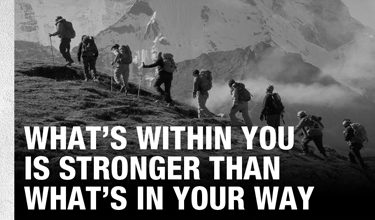
What’s within you is stronger than what’s in your way.
What is the greatest thing that music does for your soul?
It allows me to express myself. I was always a painfully shy child and a person who is socially awkward, so music to me was my way of saying how I felt without the pressure of people knowing.
What do you hope people feel and take home with them when they hear you sing?
I want people to dream for a moment and to know that they’re not alone in whatever they’re going through, that we can smile, we can laugh together, and we can go through the hard moments together as well.
EVENT DETAILS:
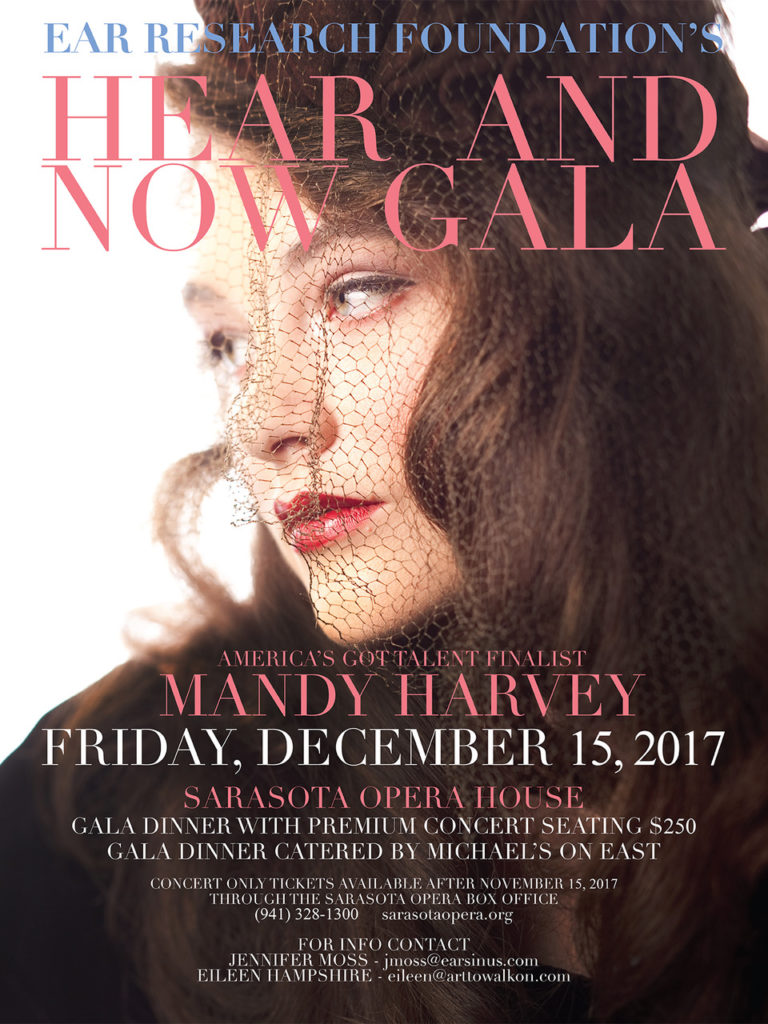
HEAR & NOW GALA
Mandy Harvey
Friday, December 15, 2017
SARASOTA OPERA HOUSE
Gala Dinner with Premium Concert Seating $250
*There will be a Complimentary After Party in the Opera House Courtyard.
*Cash bar
*Music by Dr. Silverstein
*Complimentary Pastries and Coffee.
Concert-Only Tickets
Starting at $19
Available Through
Sarasota Opera Box Office
941.328.1300 sarasotaopera.org
For info contact:
Jennifer Moss – jmoss@earsinus.com
Find more Scenes from an Interview here.


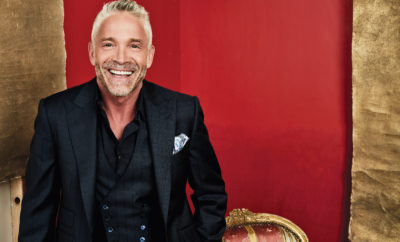
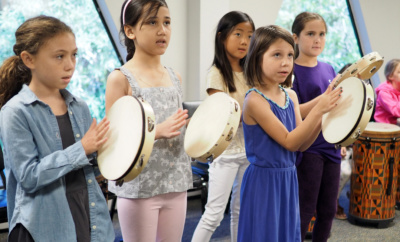
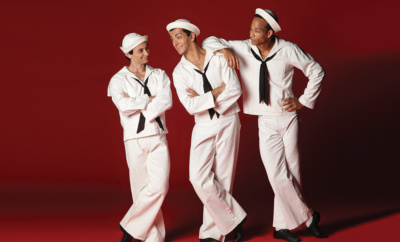

You must be logged in to post a comment Login